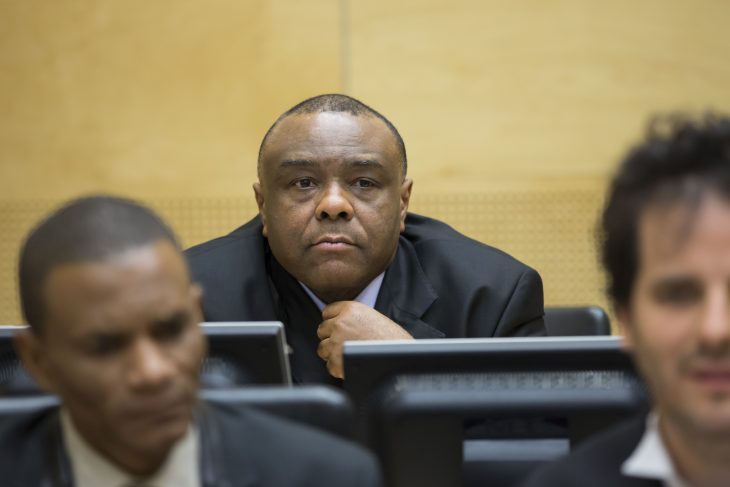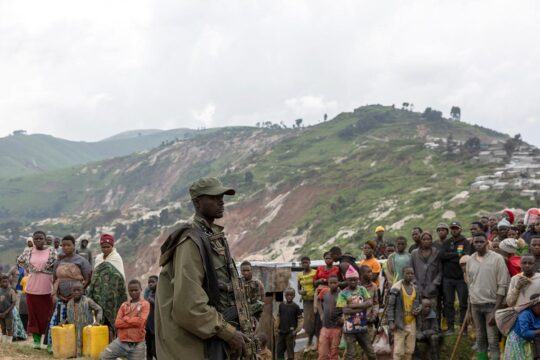The Great Lakes region of Africa, including the Democratic Republic of Congo (DRC), Burundi, Rwanda and Uganda, was at the heart of transitional justice developments this week.
On Sunday, genocide suspect Ladislas Ntaganzwa was transferred to Rwanda from the DRC, where he was arrested in December. This former mayor is charged with genocide and orchestrating the rape of several women. He will now be tried by Rwanda’s judicial authorities, to whom the International Criminal Tribunal for Rwanda (ICTR) transferred his case files in May 2012. He was one of the nine genocide suspects wanted by this UN tribunal, which closed its doors at the end of 2015. Does his arrest in the DRC, which has long supported and sheltered rebel groups accused of genocide and other massive violations of human rights, signal the end of impunity for war criminals in the Great Lakes region?
As if by a coincidence of timing, Kinshasa this week hosted a conference of the main countries in the region, aimed at ending this impunity. In an analysis for JusticeInfo, correspondent Habibou Bangré quotes Congolese Justice Minister Alexis Thambwe Mwamba, who says “this is the first time specialized prosecutors, Interpol and the UN’s Mechanism for International Criminal Tribunals (MICT), which has replaced the International Criminal Tribunal for Rwanda, have met together. Cooperation is crucial to combat impunity effectively in this region, which has been unstable for 20 years because of armed groups”.
“Holding perpetrators to account for international crimes, including illegal exploitation of natural resources, is essential to ending the causes of impunity that allow armed groups to prosper, and to restoring the dignity and security of victims,” said Myriam Raymond-Jetté, head of the DRC office of ICTJ, an NGO specialized in transitional justice. It remains to be seen if rivalries between countries of the region, notably Rwanda and the DRC, can be put aside so that words can be put into action.
On Monday, the International Criminal Court (ICC) is to hand down a historic judgment in the case of Jean-Pierre Bemba, who was Vice-President of the DRC from 2003 to 2006 as the country was emerging from its second civil war. He is charged with war crimes and crimes against humanity committed by his troops in the Central African Republic in 2002 and 2003. The verdict will be watched closely in the DRC, where this reputedly fearsome ex-warlord is still very popular.
Elsewhere in Africa, the search for justice and truth is moving slowly in Mali. In an interview with JusticeInfo Nina Oualet Intallou, First Vice-President of the country’s Truth, Justice and Réconciliation Commission and a member of the National Movement for the Liberation of Azawad (MNLA) vowed that her membership of an ex-rebel group and the Malian army’s assassination of her Touareg father will not affect her quest for truth. “ As part of the peace and reconciliation process, I will do everything I can as First Vice-President of the Commission to help establish the truth and let everyone know the root causes of this crisis. If there is no truth and justice, then we will have done nothing. You know, we were close to a genocide in Mali. We have come back from the brink!” she told JusticeInfo.
Still in Africa, critics of Burundian President Pierre Nkurunziza say he is using the Truth and Reconciliation Commission as a diversionary tactic. As Ephrem Rugiririza writes: “The decision to launch the Commission’s work at the beginning of March has brought accusations that the government is trying to divert attention away from the country’s dark, ongoing reality of summary executions, massive arrests, arbitrary detention and torture, which have been the reality in Burundi for the past year.”
Africa does not, of course, have a monopoly on issues of truth and justice. Pierre Hazan, JusticeInfo Editorial Advisor, asks some questions about Germany, which continues to try suspected war criminals more than 70 years after the Holocaust. “Germany’s judicial authorities intend to pursue Nazi war criminals down to the last one, however old they are,” writes Pierre Hazan. “As a 95-year-old former Auschwitz nurse Hubert Zafke was due to go on trial on March 14 and the court halted proceedings the same day for medical reasons, we have to ask the question: Do these trials for History still serve as a lesson? And are they not hiding the fact that some of the worst Nazi war criminals were freed in the 1950s?”
“In retrospect, Realpolitik and mythology have come up trumps,” he concludes. “History will remember the determination of the judges at Nuremberg and then of the German courts to prosecute Nazi war criminals down to the last one, whatever their age, and will no doubt forget other times when some of the worst Nazi criminals were set free under pressure from German society and with the consent of the American authorities.”







